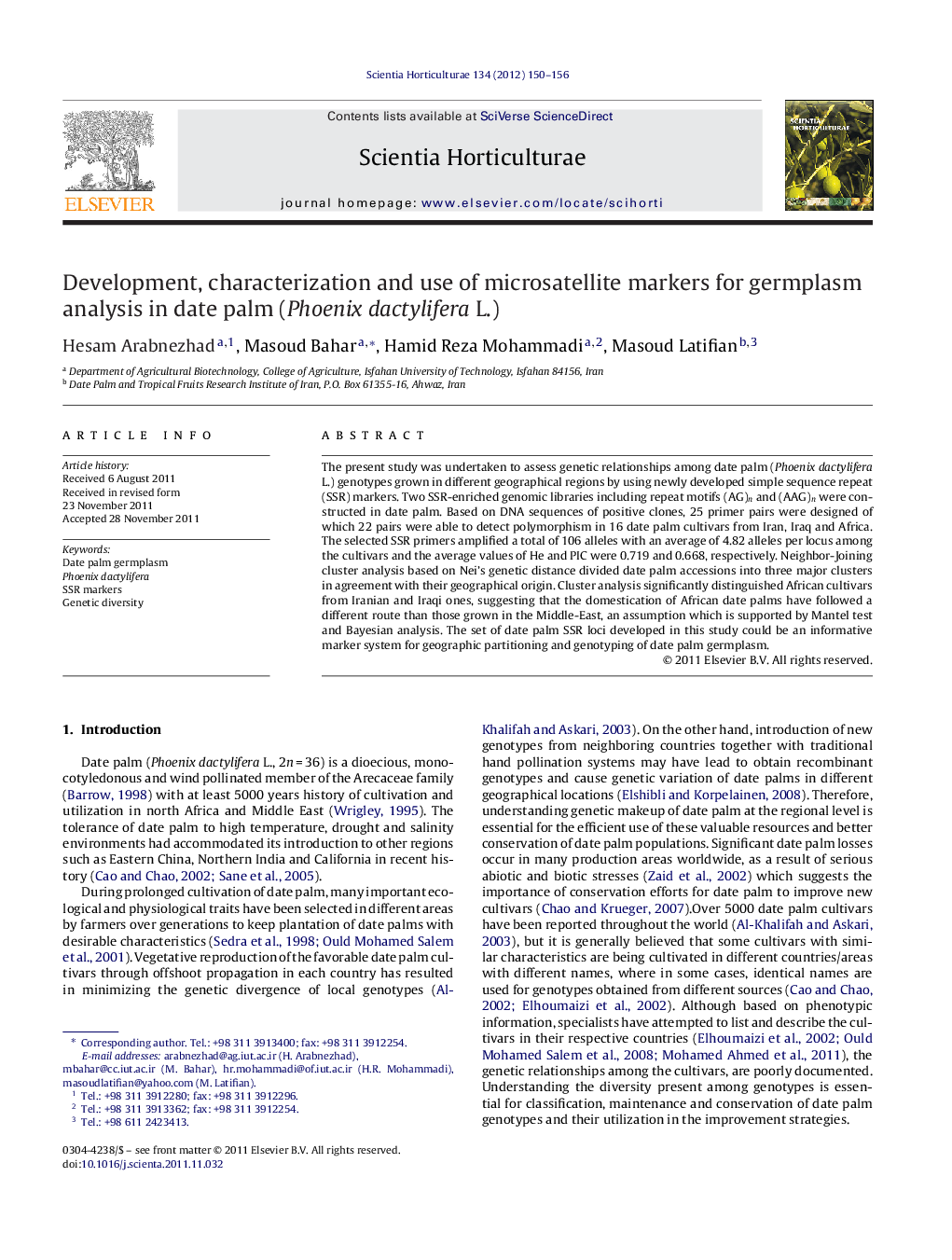| Article ID | Journal | Published Year | Pages | File Type |
|---|---|---|---|---|
| 4567771 | Scientia Horticulturae | 2012 | 7 Pages |
The present study was undertaken to assess genetic relationships among date palm (Phoenix dactylifera L.) genotypes grown in different geographical regions by using newly developed simple sequence repeat (SSR) markers. Two SSR-enriched genomic libraries including repeat motifs (AG)n and (AAG)n were constructed in date palm. Based on DNA sequences of positive clones, 25 primer pairs were designed of which 22 pairs were able to detect polymorphism in 16 date palm cultivars from Iran, Iraq and Africa. The selected SSR primers amplified a total of 106 alleles with an average of 4.82 alleles per locus among the cultivars and the average values of He and PIC were 0.719 and 0.668, respectively. Neighbor-Joining cluster analysis based on Nei's genetic distance divided date palm accessions into three major clusters in agreement with their geographical origin. Cluster analysis significantly distinguished African cultivars from Iranian and Iraqi ones, suggesting that the domestication of African date palms have followed a different route than those grown in the Middle-East, an assumption which is supported by Mantel test and Bayesian analysis. The set of date palm SSR loci developed in this study could be an informative marker system for geographic partitioning and genotyping of date palm germplasm.
► A novel set of microsatellite loci suitable for genotyping were developed from two enriched genomic libraries for Phoenix dactylifera L. ► The cluster analysis placed African date palms in a group different from Iranian and Iraqi genotypes. ► It seems that the domestication of African date palms have followed a different route than those grown in the Middle-East. ► The results suggested a significant relationship between genetic differentiation and geographical distances of date palm cultivars.
